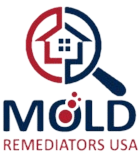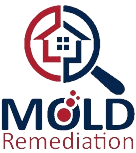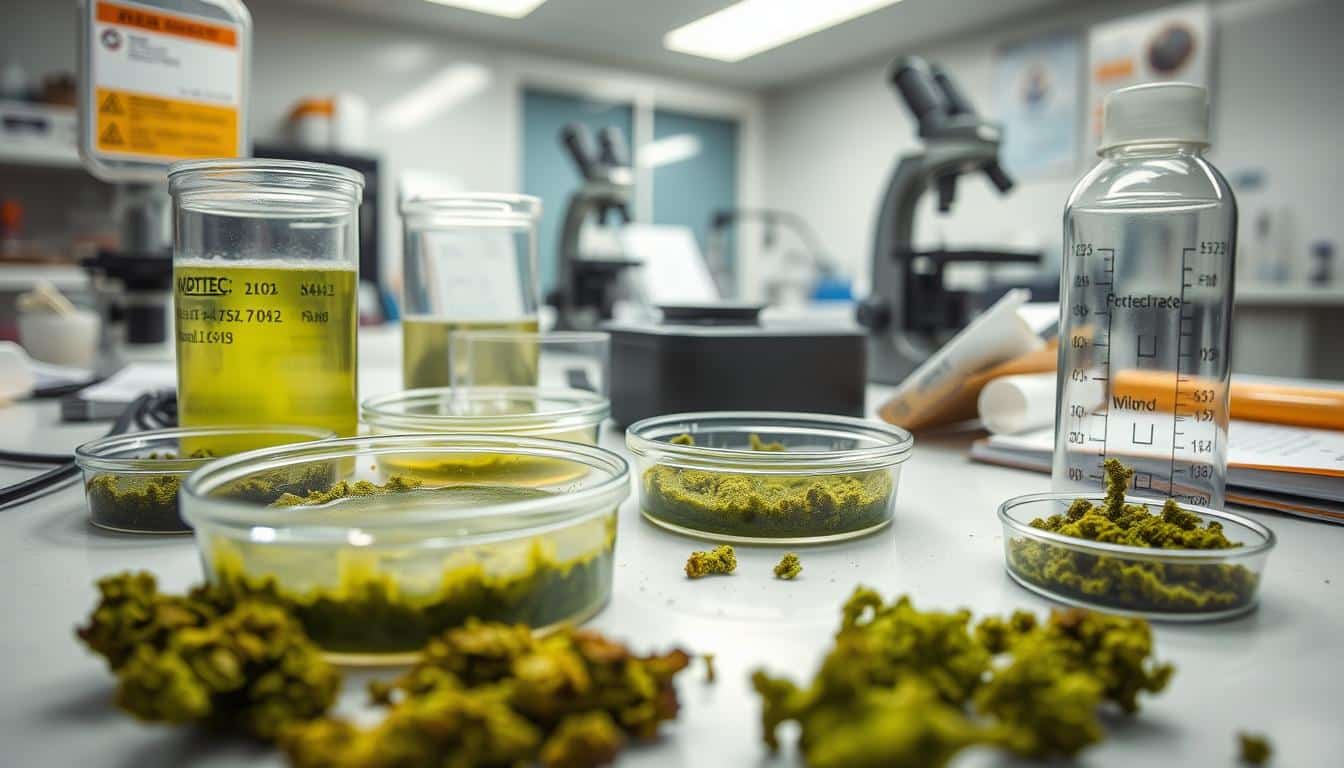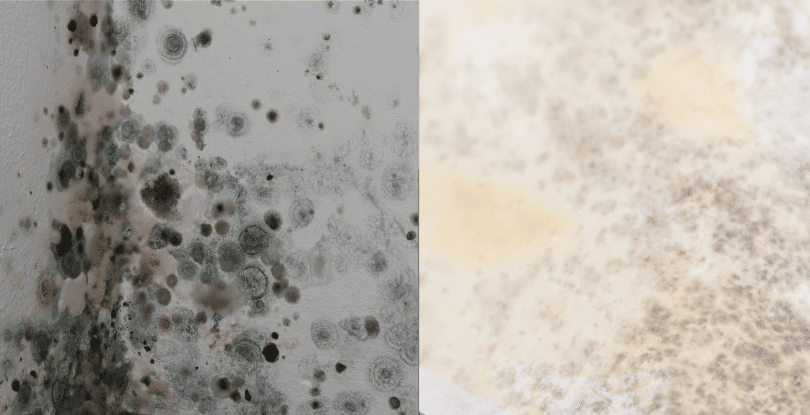In the southwestern United States, mold exposure can cause a serious condition called coccidioidomycosis, or “valley fever”. This fact shows why it’s key to know how to test for and handle mold exposure. Mold health issues can hit homeowners, renters, and workers, making it vital to have the right info to tackle these problems.
To diagnose mold exposure, you need to look at your symptoms and get a doctor’s check-up. Tests can show if you’re allergic to mold and which types you react to. It’s important to test right to deal with mold health issues, as exposure can cause many problems, from breathing issues to serious infections.
Key Takeaways
- Mold exposure can have serious health consequences, including rare but potentially severe lung infections.
- Diagnostic tests like skin prick tests and blood tests can identify mold allergies and the specific types of mold a person is sensitive to.
- Proper testing is crucial for managing mold-related health issues, as exposure can lead to a variety of symptoms, from respiratory problems to neurological effects.
- Mold testing can be complex, with false negatives and positives being common, and the costs can vary widely depending on the type of test and number of samples required.
- Working with a qualified professional is important for accurate mold testing and identification of the specific mold types present in a home or work environment.
Understanding Mold Exposure and Its Effects
What is Mold Exposure?
Mold is a fungus that grows in warm, damp places. Being exposed to mold, like “black mold,” can cause allergic reactions and health problems. This is especially true for people with asthma, weak immune systems, or mold allergies. Knowing about mold exposure and its effects is key to keeping the air inside your home clean and safe.
Common Symptoms of Mold Exposure
The signs of mold exposure can vary from mild to severe. They depend on how sensitive a person is and how much mold they’ve been exposed to. Some common symptoms include:
- Nasal congestion
- Coughing and wheezing
- Eye and skin irritation
- Respiratory problems, such as asthma attacks
In severe cases, mold exposure can cause serious health problems. This is especially true for people with weak immune systems. It’s important to find and treat mold exposure quickly to manage symptoms and prevent worse problems.
Dealing with mold-related health issues early can improve your health and save money. By [https://www.moldremediatorsusa.com/mold-removal-service/] fixing the mold problem and improving air quality, you can make your living or working space healthier.

“Mold can produce allergens, irritants, and in some cases, potentially toxic substances known as mycotoxins. Exposure to mold can cause a variety of health effects, from mild allergic reactions to more serious respiratory problems.”
Understanding the risks and effects of mold exposure is the first step in protecting your health and keeping your environment safe. If you think you have a mold problem, it’s important to get professional help and take action to fix it.
Methods for Testing for Mold Exposure
Figuring out if you’ve been exposed to mold can be tricky. But, there are a few ways to find out. The skin prick test and a blood test for mold antibodies are common methods.
Skin Prick Test
The skin prick test is a common way to check for allergies, including mold. It works by applying small amounts of mold allergens to your skin. If a bump shows up, it means you might be allergic to that mold.
Blood Test
A blood test can also check for mold allergies. It looks for mold-specific antibodies in your blood. This test can tell you which molds you might be allergic to, helping you find the right treatment.
It’s best to talk to an allergist or environmental health specialist for mold testing. They can make sure the tests are done right. They’ll also help you understand what the results mean for you.
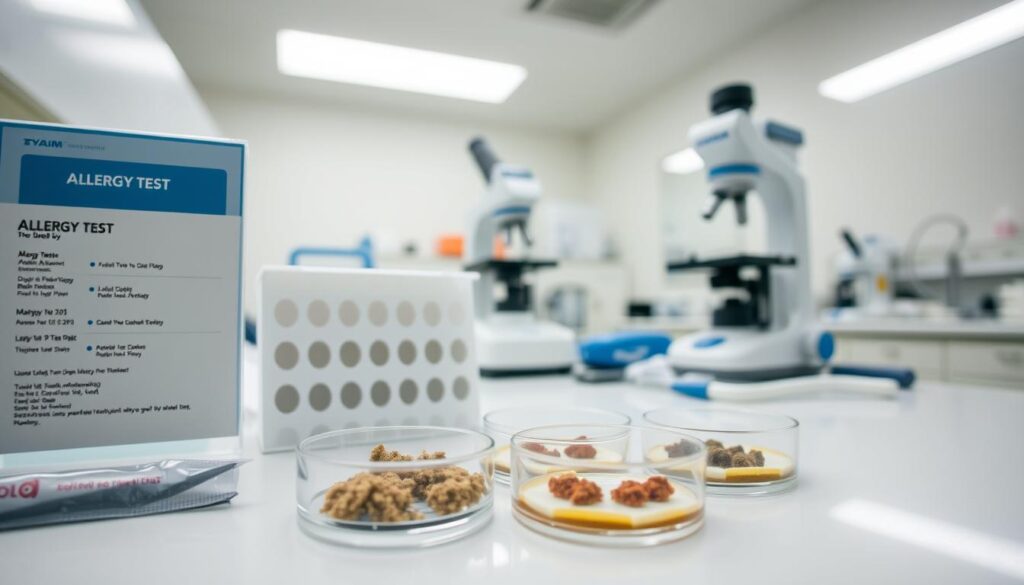
Learning about mold exposure testing is a big step. It helps you tackle any mold issues and improve your health and air quality at home.
Preparing for Mold Exposure Testing
Before your mold exposure testing, there are steps to take. Talk about your symptoms, medical history, and any mold exposure at home or work. This info helps your doctor choose the right tests.
You might need to stop some allergy meds before the test. Your doctor will tell you how long. At the test, expect a physical check-up and possibly a skin prick or blood test.
Questions to Ask Your Doctor
- What are the different types of mold exposure tests available?
- How long will I need to stop taking allergy medication before the appointment?
- How will the test be performed, and what should I expect during the process?
- How long will it take to receive the test results?
- What are the potential risks or side effects associated with the testing?
- What steps should I take to prepare my home or workplace for the testing?
What to Expect During the Appointment
Your doctor will start with a physical check-up. They look for signs of mold exposure. Then, they might do a skin prick or blood test to check for mold allergies.
The skin prick test uses mold extracts on your skin. It looks for reactions like redness or itching. The blood test checks for mold antibodies in your blood.
Your doctor will explain everything during the test. Be open about your symptoms and mold exposure. This helps get accurate results and the right treatment.
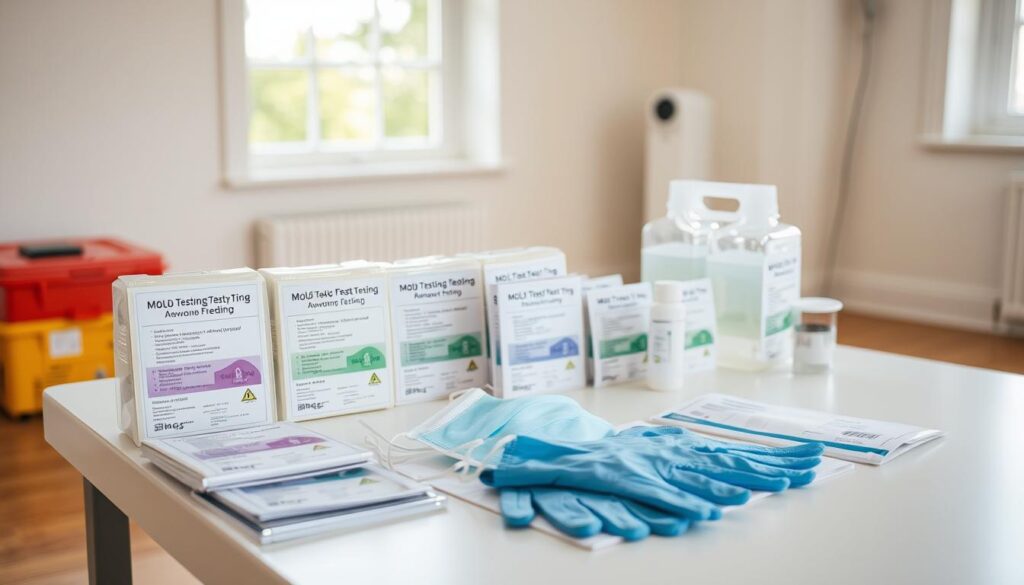
How Do You Get Tested for Mold Exposure
If you think mold might be making you sick, see a doctor who knows about mold. Allergists and environmental health experts can order tests to find mold problems. They can help figure out if mold in your home or work is causing your symptoms.
Finding a Qualified Professional
Look for doctors who know about mold illnesses. Certified mold inspectors or industrial hygienists can also help find and fix mold issues in your space.
Types of Tests Available
Tests for mold exposure include skin prick tests and blood tests. These check if you’re allergic to mold and which kind you’re reacting to. Your doctor might also do more tests, like mycotoxin or mVOC tests, to check for mold toxins.
| Test Type | Purpose |
|---|---|
| Skin Prick Test | Assess immune system sensitivity to different mold species |
| Blood Test | Measure antibodies to specific mold allergens |
| Mycotoxin Test | Detect the presence of mold-related toxins in the body |
| mVOC Test | Identify microbial volatile organic compounds produced by mold |
With the right doctor and tests, you can understand your mold exposure better. This helps you take steps to improve your health.
Interpreting Test Results
After your mold exposure tests are done, the real challenge starts. Your healthcare provider will look closely at the results. They will figure out how sensitive you are and which mold types you react to. If the tests show you’re allergic or sensitive to mold, it’s a clear sign.
Your doctor will use this information, along with your symptoms and health history, to create a treatment plan. Talking about the test results with your doctor helps you understand your mold-related health issues. It also shows you the steps to take to fix them.
Mold testing isn’t always 100% accurate. Many things can affect the results, like air flow and how the sample was taken. But, when you look at the test results with a detailed inspection and your health history, they can still give you important insights.
It’s key to understand interpreting mold exposure test results and understanding mold allergy test results. This knowledge helps you improve your indoor air quality and manage your symptoms. By working with your doctor, you can make sure the test results are used to create a good treatment plan.
“The key to addressing mold exposure is to first understand the extent of the problem through comprehensive testing. Only then can you develop a targeted plan to eliminate the mold and improve your indoor air quality.”
Treatment Options for Mold Exposure
If testing shows you have a mold allergy or exposure, there are many ways to help. You can use medicines and therapies, or make changes in your lifestyle and environment. These steps can help you feel better and recover faster.
Medications and Therapies
Doctors can prescribe medicines like nasal sprays, antihistamines, and decongestants. These can ease symptoms like a stuffy nose, itchy skin, and red, watery eyes. Sometimes, they might suggest immunotherapy, or allergy shots, to make your body less reactive to mold.
Lifestyle and Environmental Changes
Changing your lifestyle and environment can also help. This might include:
- Keeping indoor humidity levels below 50%
- Cleaning up any mold you see at home or work
- Using HEPA air filters to catch and remove mold spores
- Staying away from activities that expose you to mold, like gardening or construction
It’s important to work with your doctor to find the best treatment plan. This plan should consider your health needs and your living or work environment. By addressing treatment for mold exposure, medications for mold allergies, and lifestyle changes for mold exposure, you can manage your condition and feel better.
The most important thing is to work with a doctor who is knowledgeable about mold exposure and can guide you through the appropriate testing and treatment options.
Prevention and Remediation of Mold
Keeping your home mold-free is key to a healthy living space. Start by looking for mold in your home. Watch for dark spots, musty smells, and water damage signs. These are signs of mold growth.
Identifying Mold in Your Home
Mold thrives in moist, organic-rich areas. This includes soil, foods, plants, and homes. Moisture sources like leaks and steam can lead to mold. It shows as fuzzy, discolored, or slimy patches with a musty smell.
Removing Mold from Your Home
When you find mold, remove it safely. Use protective gear and follow EPA cleaning tips. Discard materials like drywall and carpeting with big mold spots. Clean smaller areas with soap and water. For bigger jobs, hire a licensed contractor.
Fixing the moisture issues is also vital. Regular upkeep and controlling humidity can stop mold. By doing this, you can keep mold away and ensure your home stays mold-free.
When to Seek Medical Attention
If you think mold is making you sick, seeing a doctor is key. This is especially true if you have lung problems, a weak immune system, or symptoms that don’t go away. [https://www.moldremediatorsusa.com/what-are-signs-of-mold-toxicity-expert-advice/] Severe reactions like trouble breathing, skin rashes, or brain problems need quick doctor visits. Your doctor can figure out if mold is causing your health issues and help you get better.
Here are some signs you should see a doctor for mold exposure:
- Persistent sinus congestion
- Recurring headaches
- Chronic coughing
- Breathing difficulties
- Nosebleeds
- Unexplained skin irritation
- Increased asthma attacks
People with asthma or weak immune systems are more at risk from mold illness. If you have these symptoms, see a doctor fast. Early treatment can stop serious problems. Your doctor will give you the right treatment and advice to fix the mold issue.
| Risk Factors for Mold-Related Health Issues | Common Symptoms of Mold Exposure |
|---|---|
|
|
Knowing the signs of mold illness and getting medical help when needed is important. It helps you deal with mold exposure and stay healthy.
Conclusion
Testing and diagnosis are key to handling mold health issues. Skin prick tests, blood tests, and doctor visits help figure out mold allergies or sensitivities. This is especially true with the help of experts like those at Companion Health in Charlotte, NC.
There are ways to treat mold exposure. This includes medicines, cleaning up the environment, and making lifestyle changes. Knowing the signs of mold illness and getting medical help early can keep you healthy. It also makes your living space safer and healthier.
Dealing with mold toxicity takes time and a detailed plan. But, getting rid of this health risk can change your life for the better. With the right steps, you can feel better and enjoy your life again.
FAQ
What is involved in the diagnosis of mold exposure?
To diagnose mold exposure, your doctor will look at your symptoms and do a physical exam. They might also do tests like skin prick tests or blood tests. These tests help find out if you’re allergic to mold and which types you’re sensitive to.
What are the common symptoms of mold exposure?
Symptoms of mold exposure include nasal congestion, coughing, and wheezing. You might also have eye or skin irritation. In severe cases, it can lead to serious respiratory problems.
What types of diagnostic tests are used to test for mold exposure?
Tests for mold exposure include skin prick tests and blood tests. The skin prick test checks for an allergic reaction to mold. Blood tests measure mold-specific antibodies, showing if you’re sensitive to mold.
How should I prepare for a mold exposure test?
Before your test, stop taking allergy meds as your doctor advises. At your appointment, talk about your symptoms and medical history. Your doctor will do a physical exam and order tests like skin prick or blood tests.
Where can I get tested for mold exposure?
See an allergist or environmental health specialist for mold testing. They can order the right tests, like skin prick or blood tests. Working with a certified mold inspector can also help find mold issues in your home or workplace.
How are mold exposure test results interpreted?
After your tests, your doctor will look at the results. Positive results mean you’re allergic to mold. They’ll use this info to create a treatment plan for you.
What treatment options are available for mold exposure?
If you have a mold allergy, there are treatments. You might take nasal corticosteroids, antihistamines, or decongestants. Immunotherapy, or allergy shots, might also be suggested. Making lifestyle changes, like reducing humidity, can also help.
How can I prevent and remediate mold issues in my home?
To prevent mold, look for dark spots and musty smells. If you find mold, remove it safely using EPA-recommended methods. Fixing moisture problems is key to stopping mold from coming back.
When should I seek medical attention for mold exposure?
If mold is affecting your health, see a doctor. This is especially true if you have lung problems or a weakened immune system. Severe reactions need immediate medical care.
